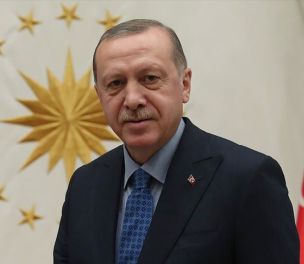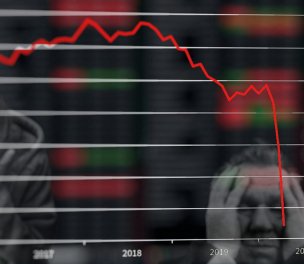Photo: AA/File
Some 85 percent of the people in Turkey think the country needs a powerful leader, according to a new survey by KONDA.
Fifty percent of the respondents said, "correct" and 30 percent said "absolutely correct" when asked whether they agreed with the statement that "We always need a powerful leader."
Among party voters, 96 percent of the respondents said who voted for the ruling Justice and Development Party (AKP), 76 percent of the voters of the Republican People's Party (CHP) and 69 percent of the voters of the Peoples' Democratic Party (HDP) think the country needs a powerful leader.
CLICK - Study: People in Turkey prefer both democracy and a powerful leader
Voters of the two nationalist parties, the Nationalist Movement Party (MHP) and the İYİ (Good) Party, tend to favor a powerful leader more than their allied parties, the AKP and the CHP, respectively.
As for the ethnicity of the respondents, 87 percent of the Turks and 80 percent of the Kurds agreed with the aforementioned statement.
The survey was conducted as part of a study by the BAYETAV Foundation about "the capacity of living together in a polarized society."
The study, which was also based on qualitative interviews, says people's responses did not necessarily reflect an authoritarian tendency. A "powerful leader" is seen as a leader who can swiftly solve practical issues and the lack of reliable and inclusive institutions increases people's desire for a powerful leader, it concludes.
Nationalism
When asked to describe themselves with two of a list of political identities, 28 percent of the respondents chose "nationalist," 25 percent chose "Atatürkist," 23 percent chose "conservative," and 17 percent chose "Islamist."
"Atatürkism" indicates a more secular nationalism whereas "conservatism" and "Islamism" are more likely to be picked by the AKP supporters.
Also, Atatürkism and conservatism were more common among the respondents older than 49 whereas the respondents between the ages of 33 and 48 were more likely to identify with nationalism and Islamism, shows the survey results.
Hate speech
Some 94 percent of respondents think that the state should be at equal distance to all individuals, groups and identities.
Sixty-six percent of respondents agreed with the statement that "I can't bear the groups that cause the problems of our society" while only 16 percent said it was a wrong statement. However, 66 percent think hate speech should be a crime and 85 percent think "we should try to understand people who are different from us." (VK)







.jpg)